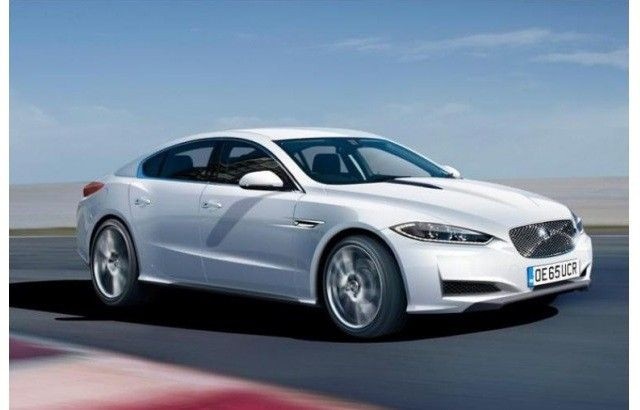
Big changes are in store for Jaguar in the months ahead as the all-new F-Type sports car nears its official market release.
Not only does the lithe front engine, rear wheel drive sports car represent itself as the spiritual successor to the legendary Jaguar E-Type, it also represents a new generation of smaller sports cars for the automaker's model lineup as well.
According to Autocar, Jaguar is now much closer to the official development of a compact and lightweight rear-wheel drive sports sedan that will attack a highly competitive category. If Jaguar gets it right, then the new small sedan will potentially represent a major sales spike for the company.
According to sources in Jaguar, the new small sedan will be priced competitively against the BMW 3-Series and Audi A4, but will not act as a direct rival. Jaguar engineers will make it a point to develop an aluminum extensive construction that will be significantly more lightweight and more economical than the competition. What's more, the new Jaguar sedan will likely offer a four-cylinder powerplant.
On Jaguar's pursuit to lead the industry in aluminum construction, Jaguar's design chief Ian Callum shed some light on the company's philosophy.
"I think downsizing can only go so far," said Callum. "Then it comes down to the efficiency of the vehicle. Mass, rather than size, is something we have a big lead on with our aluminium construction. Downsizing is not off our radar and we have to take it seriously. But we've got the head start on mass."
Jaguar global brand director Adrian Hallmark added his take on the significance of a new Jaguar compact sedan: " The 3-series is an easy simile for where we could go, but it's not the only gig in town. All the cars are good in that segment. All have the blend of performance and efficiency, as well as very sophisticated equipment.
"It took Audi 20 years to build up to where it is," Hallmark continued. "For us to come in and go to the top of the league is impossible, so we have to find ways of expanding our business profitably and we're well developed in that process. We are undergoing creative analysis of competitors and consumers."
Despite Jaguar's ambitious plans, the company isn't expecting quick rewards. "Trying to find a gap to exploit is a real challenge. Nobody is waiting for another competitor to enter a segment. For us to enter... we have to have a winning proposition. It has to have a twist, something relevant to the consumer. But the Jaguar brand should define everything."
Numbers indicate that Jaguar currently sells only 60,000 units annually, a relatively small footprint for such an illustrious automaker. However, the global market for compact premium sedans account for nearly two million units in annual sales. By spearheading this category, Jaguar stands to more than double its output.
Beyond diving into a new market, the compact Jaguar will also possess a next-generation modular platform that will serve as the bones of the next XF and XJ sedan models.
Adrian Hallmark calls the new aluminum modular platform "PLA," or Premium Lightweight Architecture. In fact, the PLA platform has already demonstrated its flexibility when it was first introduced in the latest Range Rover SUV from the sibling Land Rover brand. By utilizing scalable components, Jaguar expects to benefit from common components that make up 90 percent of all production, an important contribution to the future sustainable profitability of the company.
While rumors have also suggested a future Jaguar crossover, the project is not a high priority. Hallmark explains, "Even though the SUV market is growing, the saloon market is still twice the size, especially in the US. A crossover would make more noise for us than a saloon, but we already have SUVs in the company and we're not in a rush to add to that. You might not make as much profit on a saloon as an SUV, but you don't expect the likes of Audi to stop making the A4."
Stay tuned as we learn more about Jaguar's new lineup in the months ahead.




